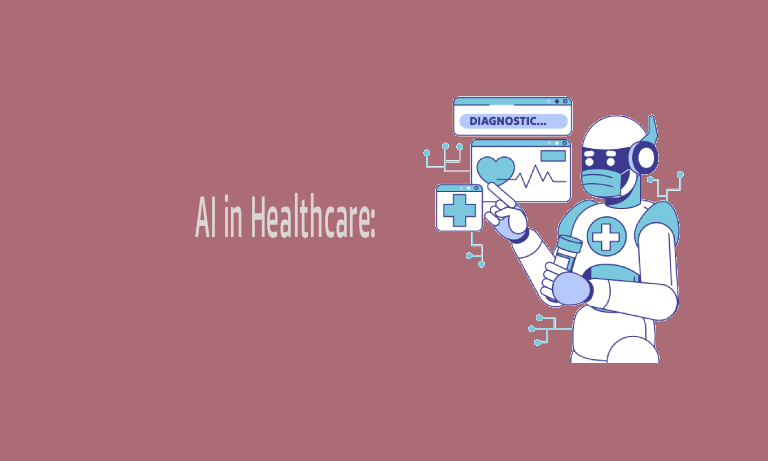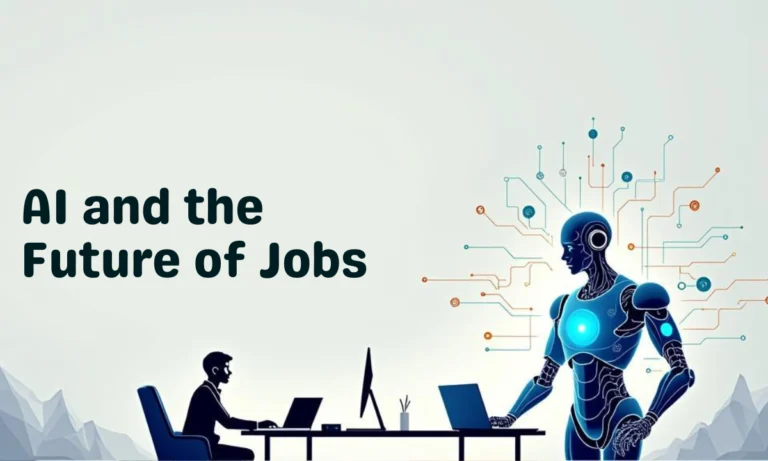Healthcare is one of the biggest beneficiaries of Artificial Intelligence (AI). From early disease detection to personalized treatment plans, AI is transforming the way doctors, hospitals, and patients interact. The combination of medical expertise and machine intelligence is improving patient care, reducing errors, and making healthcare more accessible.

How AI is Used in Healthcare Today
- Early Disease Detection
AI algorithms analyze medical scans, lab reports, and genetic data to detect diseases like cancer, diabetes, and heart conditions at an early stage—often before symptoms appear. - Medical Imaging & Diagnosis
AI-powered imaging tools assist radiologists in identifying abnormalities in X-rays, MRIs, and CT scans with high accuracy. - Virtual Health Assistants
AI chatbots and apps provide instant medical advice, track symptoms, and remind patients about medication. - Personalized Treatment
AI systems analyze patient history and lifestyle data to recommend tailored treatment plans. - Predictive Analytics
By studying patient data and health trends, AI can predict the likelihood of certain diseases and suggest preventive care.
Benefits of AI in Healthcare
- Faster & Accurate Diagnosis: AI can analyze data in minutes, reducing delays.
- Cost Efficiency: Automation reduces administrative and diagnostic costs.
- Accessibility: AI-powered apps make healthcare advice available in remote areas.
- Improved Patient Experience: Chatbots, virtual assistants, and telemedicine streamline care.
- Reduced Human Error: AI provides a second layer of analysis, minimizing mistakes.
Just as AI improves healthcare efficiency, it also enhances education by offering personalized learning and accessibility. Learn more in our blog on AI in Education.
Challenges and Limitations
While AI brings huge advantages, it also faces challenges:
- Data privacy and security concerns.
- Dependence on high-quality datasets.
- Lack of human empathy in patient care.
- Regulatory hurdles in medical approvals.
The Future of AI in Healthcare
The future looks promising:
- AI-assisted surgeries using robotic tools.
- Drug discovery accelerated by AI simulations.
- Remote patient monitoring through wearables.
- Global healthcare access via telemedicine powered by AI.
AI won’t replace doctors, but it will make them more effective by giving them powerful tools to save lives and improve patient outcomes.
Conclusion
AI is redefining the healthcare industry by making patient care smarter, faster, and more accurate. From diagnosis to treatment, the role of artificial intelligence in medicine will only grow in the years ahead. The key is to balance innovation with ethics to ensure AI serves humanity in the best possible way.
FAQs on AI in Healthcare
1. How is AI used in healthcare today?
AI is used in medical imaging, early disease detection, virtual health assistants, personalized treatment, and predictive analytics to improve patient outcomes.
2. What are the benefits of AI in healthcare?
The main benefits include faster diagnosis, reduced costs, increased accessibility, improved patient experience, and lower chances of human error in treatment.
3. Can AI replace doctors?
No, AI cannot replace doctors. Instead, it supports them by analyzing data, assisting with diagnosis, and providing insights, while human empathy and decision-making remain essential.
4. What are the challenges of using AI in healthcare?
Challenges include data privacy concerns, reliance on accurate datasets, limited empathy in patient care, and strict regulatory requirements for medical tools.
5. What is the future of AI in healthcare?
The future includes AI-assisted surgeries, faster drug discovery, wearable health monitoring devices, and expanded telemedicine for global healthcare access.






